Integrity Chain Briefing Gathers 51 Organizations to Push for Transparency in Public Infrastructure
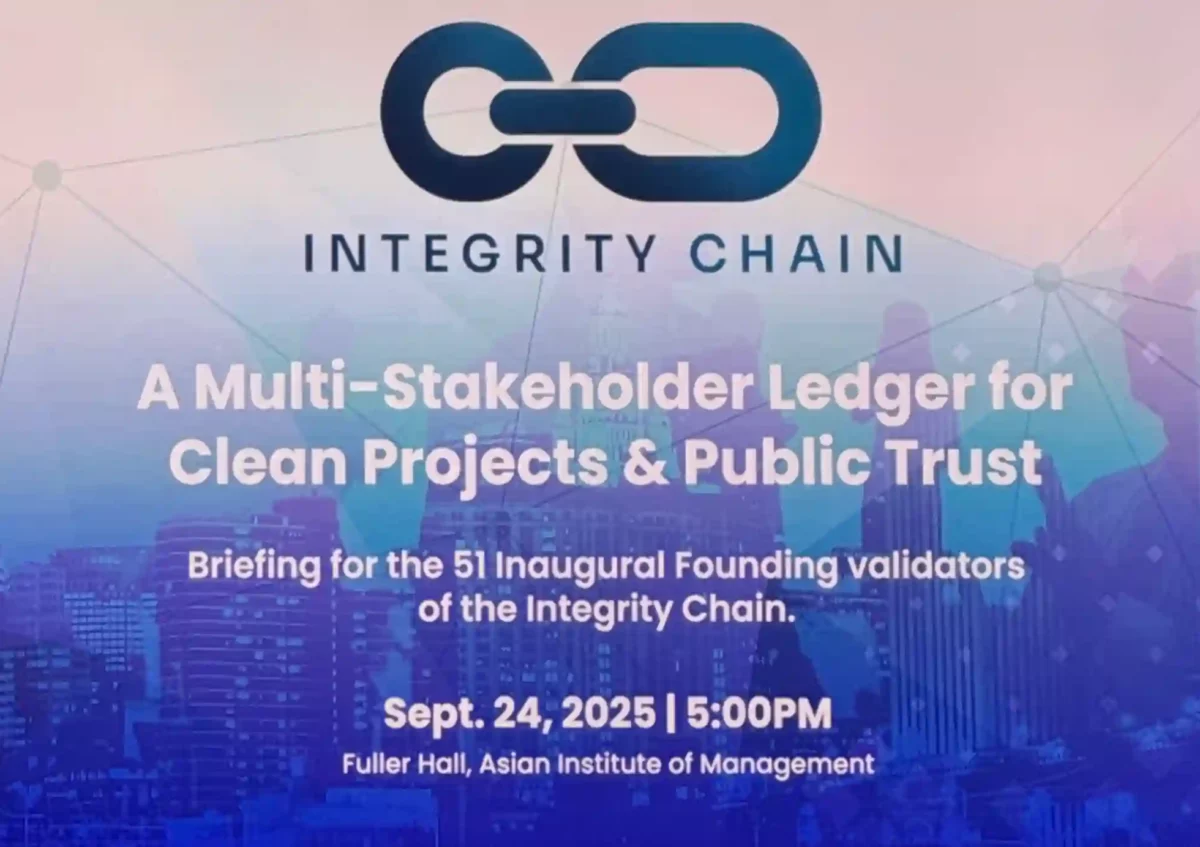
SHARE
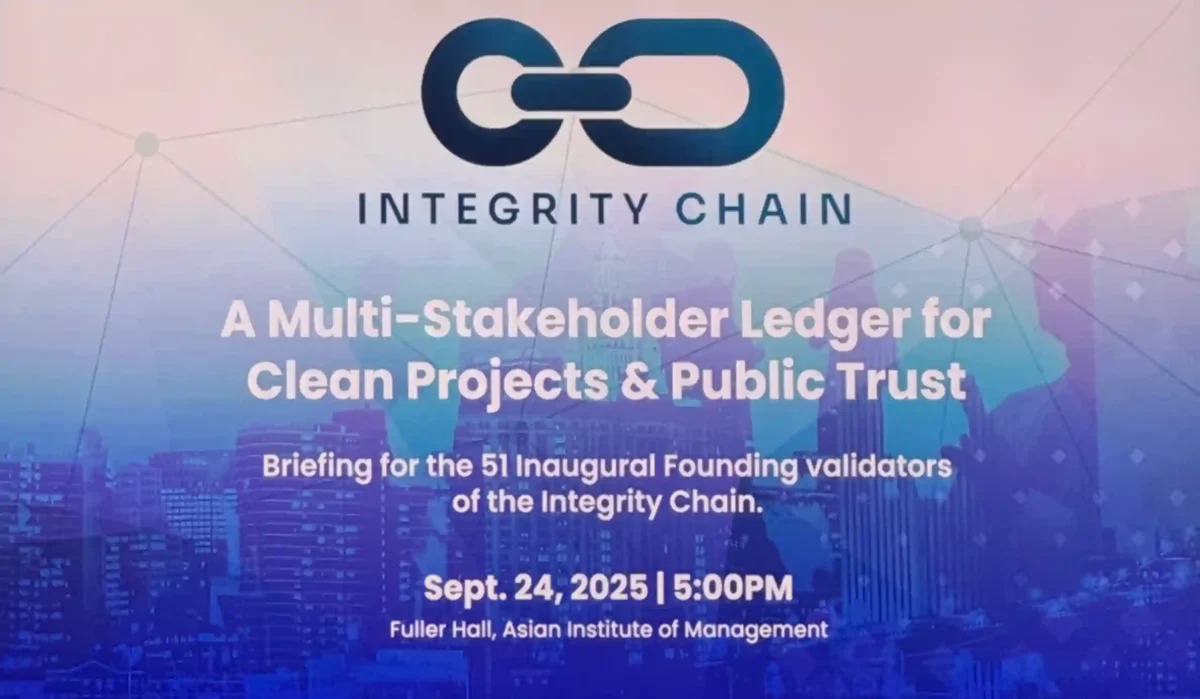
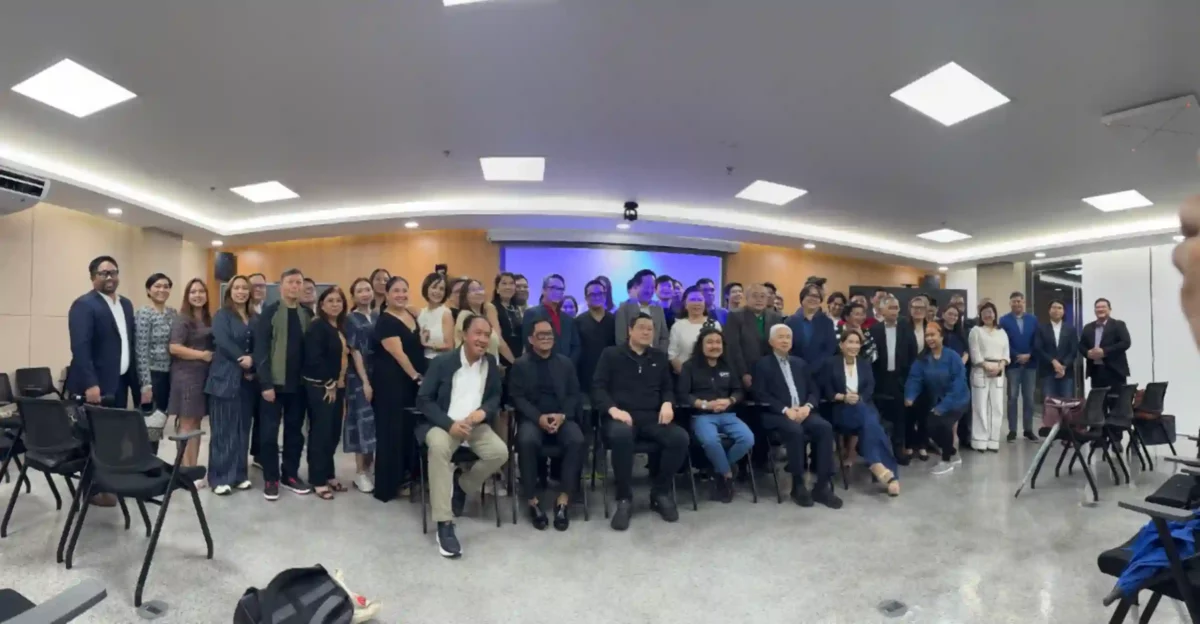
With public trust in government weakening and citizens demanding solutions, 51 organizations came together for the Founders’ Briefing of Integrity Chain, a secured, shared platform that aims to track every peso spent on public infrastructure.
Opening the program, Sir Donald Patrick Lim posed the central challenge: “Now, how do we make public infrastructure projects transparent, tamper-proof, and trusted by everyone?” His answer: Integrity Chain, a collaborative system where businesses, civil society groups, and organizations work together to verify every step of government projects.
Integrity Chain uses blockchain-inspired principles, functioning like a tamper-proof ledger where transactions are permanently recorded. “Blockchain is like an accounting ledger where transactions are recorded,” Lim explained, recalling Bam Aquino’s earlier proposal to place the national budget on blockchain. He further noted that blockchain is already widely used in supply chains, financial transactions, and more, proving its practical value in governance.
Paul Soliman outlined how this will apply in practice: DPWH files will be uploaded on the blockchain, ensuring accessibility and immutability. “Even if an incorrect data file is uploaded, the evidence remains on the public blockchain forever—holding people accountable,” he said.
How Integrity Chain Works
Integrity Chain is built on a multi-layered framework that combines technology, transparency, and citizen participation. Each layer strengthens accountability and ensures that every peso spent on public infrastructure can be traced, verified, and trusted:
- Ledger Layer – Provides an immutable log of projects where records cannot be tampered with or deleted. Includes accountability markers, geo-tagged data, public IDs, and hashed contracts to link physical projects with verifiable digital records.
- Data Layer – Offers searchable portals where stakeholders can access validated project data in a user-friendly format.
- Security Layer – Equips auditors and validators with unique blockchain IDs to authenticate their actions, ensuring only verified actors can participate in validation.
- Citizen Participation Layer – Enables citizens to share feedback, reports, or observations directly into the system, giving communities a direct role in monitoring government projects.
Together, these layers ensure that data is tamper-proof, secure, transparent, and participatory, transforming public infrastructure governance into a system citizens can trust.
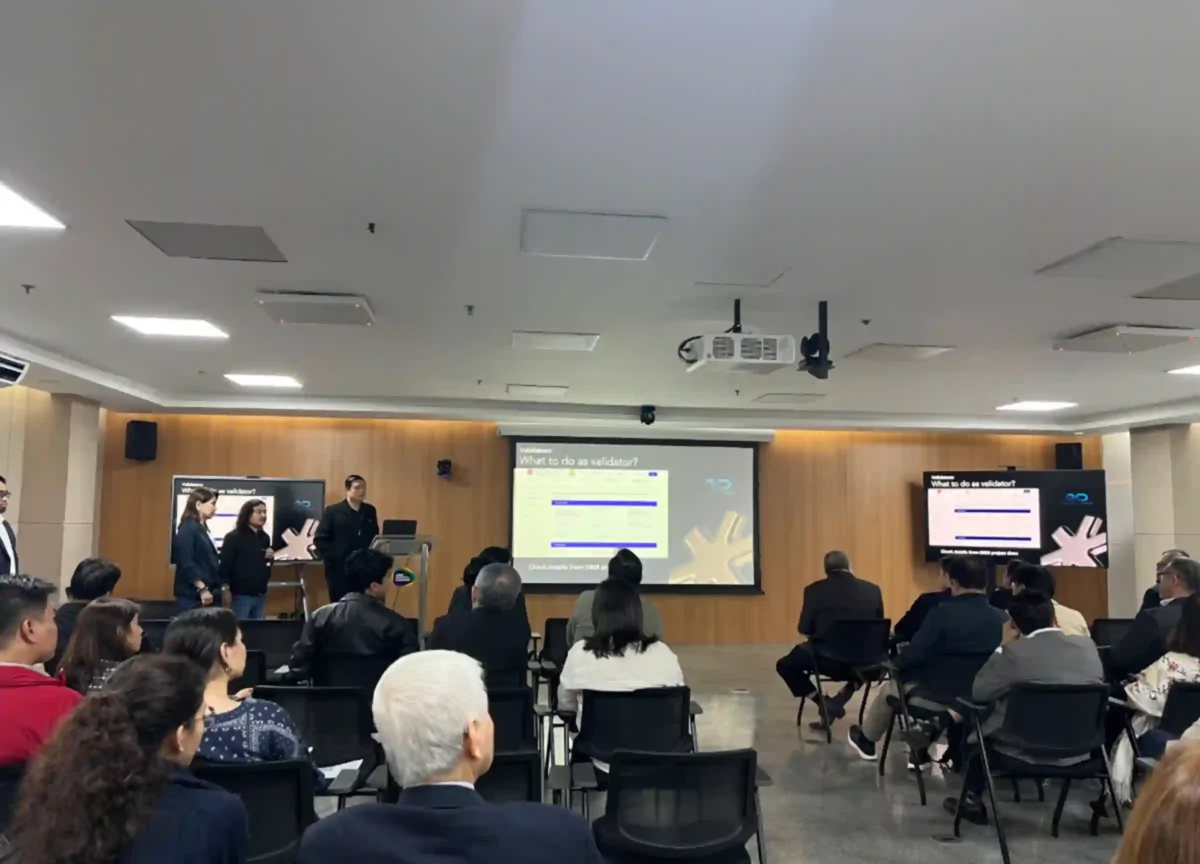
Three Ways to Participate
Integrity Chain is designed as an open and inclusive platform, with three distinct ways for stakeholders to engage:
- Validator – Independent validators confirm the accuracy of government project records. Validation may be done digitally through the DBM’s blockchain site, Project DIME, or through physical site visits and audits.
- Observer – Participants may serve as observers, monitoring the process and gaining visibility into how public funds are being tracked and validated.
- Supporter – Individuals and organizations may contribute as supporters, providing resources or advocacy to strengthen the reach and sustainability of Integrity Chain.
Governance & Safeguards
To guarantee independence, accountability, and fairness, Integrity Chain is backed by clear governance structures:
- Nonprofit Foundation Charter – Managed by a nonprofit organization to ensure transparency and accountability.
- Blind Trust Funding – Operations are funded by anonymous contributions, shielding the platform from political or corporate influence.
- Democratic Voting – Every participating organization is granted one vote, ensuring equal say regardless of size or resources.
- Code of Conduct – Members are bound by ethical standards to maintain integrity in validation and participation.
- Data Policy – Strong safeguards protect sensitive information while keeping project records open and accessible to the public.
The briefing drew strong government participation, with Usec. Anton of the Department of Trade and Industry (DTI), DTI Secretary Fred Pascual, and Usec. Raffy of the Department of Public Works and Highways (DPWH) present, affirming the importance of cross-sector collaboration in protecting public resources.
Call to Action
The Founders’ Briefing marks the first step in shaping Integrity Chain into a multi-sector movement to institutionalize accountability in public infrastructure spending. Moving forward, Integrity Chain calls on:
- Trade organizations, NGOs, universities, and newsrooms — to step up as founding validators or observers.
- Companies and philanthropies — to help fund independence through the blind trust model.
- Citizens — to actively use the data, provide feedback, and hold projects accountable.
Through shared responsibility, Integrity Chain aims to make governance in the Philippines more transparent, participatory, and trusted.
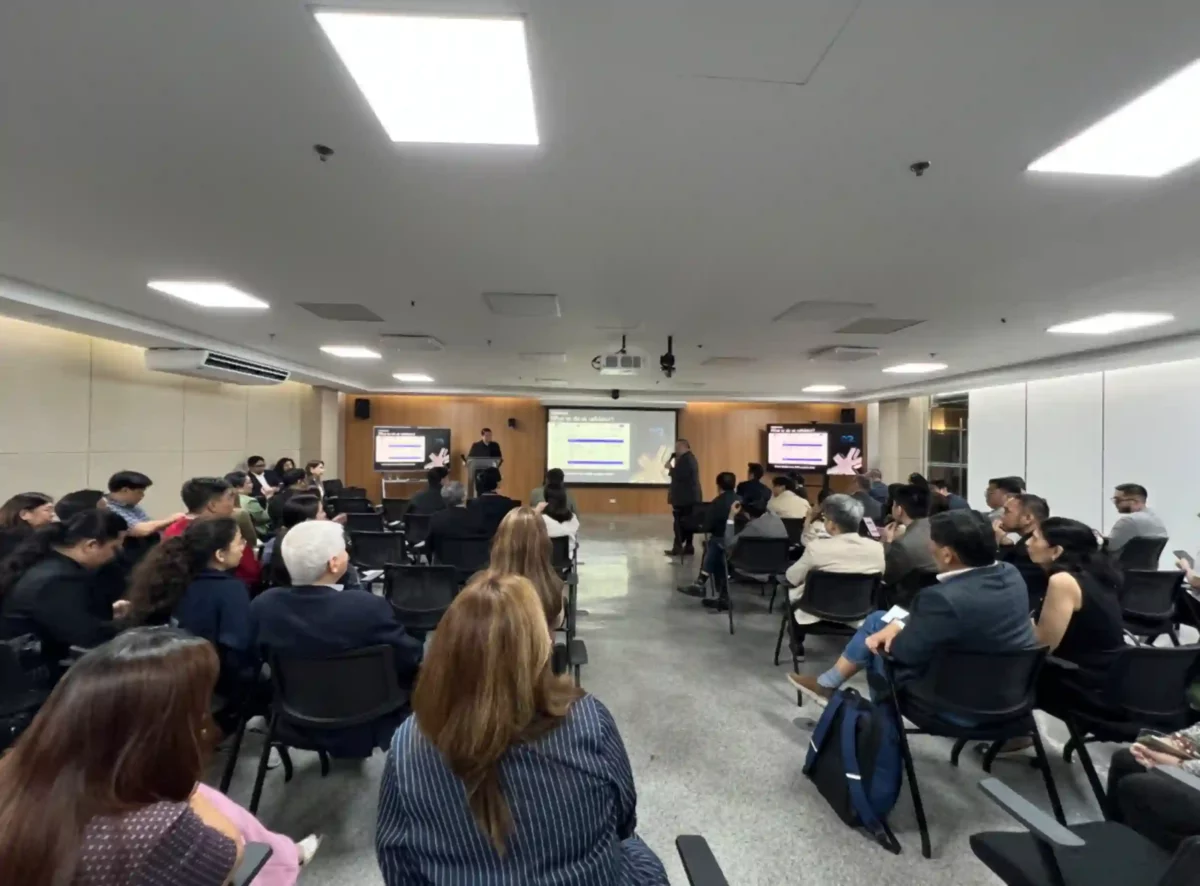
About Integrity Chain
Integrity Chain is a secured, shared platform where government, business, civil society, and organizations collaborate to verify every step of public infrastructure projects. Built on blockchain-inspired technology, sustained by a blind trust model, and supported through validator, observer, and supporter participation, it ensures that every peso spent is transparently tracked, permanently recorded, and safeguarded from tampering. Governance is secured through a nonprofit foundation, democratic voting, and strict codes of conduct and data policy.
*All Photos from Blockchain
RELATED ARTICLES

Limited Time Deals For SCHMIGADOON, THE LOST BOYS, WICKED & More

The Peninsula Cruise Experience on Star Ferry

Explore the Outlying Islands of Hong Kong at The Peninsula

‘Gift of Fortune’ Chinese New Year Stay Package








